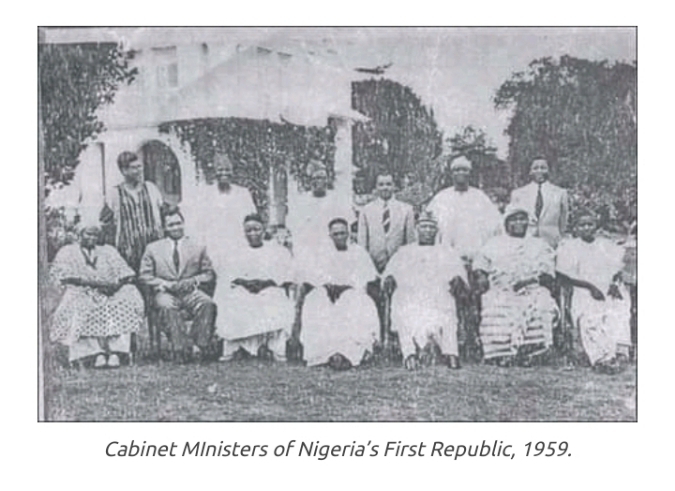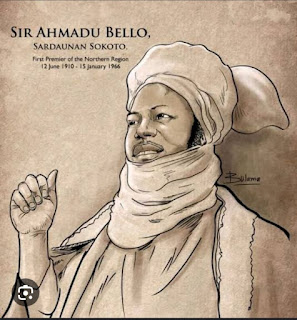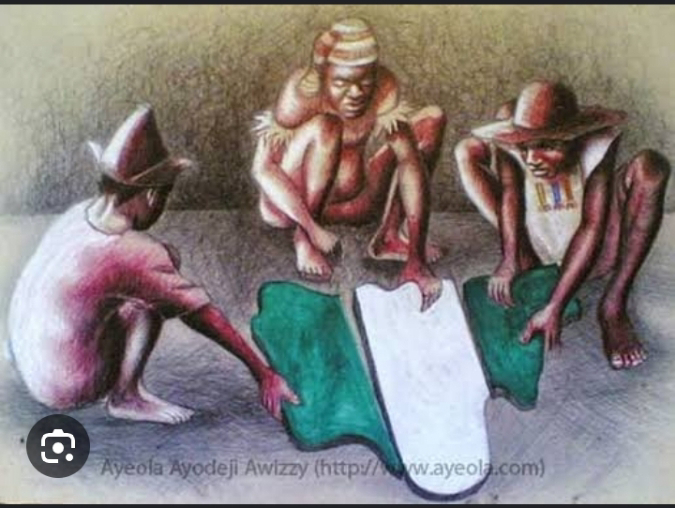Reasons For The Collapse Of Nigeria's First Republic
Backgroung
Nigeria's First Republic lasted for less than three years until it fell on January 15th, 1966, after the country's first Military coup. This article highlights some of the major events that led to the fall of Nigeria's First Republic; the coup which signalled it's end and of course the counter coup has been famously described as "Africa's bloodiest". The previous article has highlighted some of the major political circumstances that led to the intervention of the military in Nigerian democratic process. However, the military intervention did not directly put an end to the large scale political crisis. This was largely because of the ethnic nature of the Coup. It would be recalled that major C.K Nzeogwu the arrowhead and the other planners of the coup were Igbo. On the other hand those who lost their lives included the two top most religious and political leaders of Northern Nigeria Sir Ahmadu Bello and Alhaji Tafawa Balewa.
Furthermore, of the senior officers of the ranks of Lt.colonel and above of the Northern region lost four out of it's five officers. The western region lost two out of its six officers; the midwest lost one out of it's four. The Eastern region lost none out of its seven. The west African newspaper of 22nd January 1966 describe the January coup as "Igbo versus Hausa affair". This is however a wrong classification because the Yoruba had it's own share of the dead. Apart from chief Akintola, Western Nigeria lost brigadier Samuel Adesiyo and Colonel Adetunji among others, however the significantly less casualties among the Igbo as well as subsequent stereotypes did not help in putting the Igbo in good light.
Reasons For The Collapse Of The First Republic
It would be recalled that ethnicity was one of the factors that led to the collapse of Nigeria's First Republic. In a deliberate attempt to perpetuate colonial rule, the British, through the so called "divide and rule" policy promoted ethnic interest and consciousness above national interest. On the other hand the leaders of the three main ethnic groups (and later political parties) engaged in a cut-throat competition for the control of the structural frame and the system of rewards. Thus both on the part of the British colonial administration and the Nigerian political leaders, no conscious or coordinated attempts were made to building a politically united Nigeria. Thus the issues of disunity and ethnic chauvinism are as old as the country itself.
The composition of the coup planned and the victims of the coup did not help promote peace rather it subjected Nigeria to further political instability and turmoil. Moreover, the Hausa-Fulani felt that some of the policies of a the new military leader Ironsi were designed to rob them of whatever benefits they still derived from the Nigerian constitution.
To worsen the situation, complaints about Igbo provocation where widespread. Northerners filed reports about parties being called by the Igbo to celebrate what they call the "January victory". Photographs showing major Nzeogwu standing on the late Sardauna of Sokoto were said to be distributed in the open including marketplaces. It was even said that stickers were distributed showing Nzeogwu standing over the Sardauna's body and saying "shi ne maganin ku" meaning "he(Nzeogwu) is the one who can knock sense in to you(Northerners)".
The crisis that trailed the unification decree and Igbo-Hausa-Fulani hostilities climaxed on Saturday may 28 with the arrival of copies of the edition of Drum Magazine in the North. The magazine contained two provocative articles. The first written by Nelson Ottah and entitled "Why Nigeria Exploded " totally derided Northern leaders. The second article entitled "Sir Ahmadu Bello rose in his shrouds and spoke from the dead", was written by Coz Idapo. The article featured a cartoon in which the late premier was asking for forgiveness from Idapo. Ironsi made some feeble attempt at arresting the situation but he could however not salvage the situation. On 29th July 1966 the Ironsi regime was overthrown in a coup executed by Northern soldiers a coup that ushered in the bloodiest civil war in the history of Africa. It is a shame that Nigeria, Africa's greatest hope of democracy was literally in an all-out internal war within just six years of Independence.



Comments
Post a Comment